In a significant boost to its tourism and port industry, the Dominican Republic has welcomed ten cruise ships visiting the country for the first time. The vessels—Aida SOL, Cel Xcel, Brilliant Lady, Brilliant OTS, Rhapsody, Carnival Legend, Majestic Princess, Coral Princess, NCL Getaway, and NCL Joy—are operated by globally renowned cruise lines such as Aida, Celebrity Cruises, Virgin Voyages, MSC Cruises, Royal Caribbean, Carnival, Princess Cruises, and Norwegian Cruise Line. This milestone underscores the Dominican Republic’s growing appeal as a premier travel destination. Jean Luis Rodríguez, Executive Director of the Dominican Port Authority (APORDOM), emphasized that this development reflects the confidence major cruise companies have in the country’s ports and coastal offerings. He noted that the nation’s diverse maritime experiences continue to attract international attention. For November, 67 cruise ships are scheduled to dock, marking the second-highest monthly figure this year. Taíno Bay will host 40 ships, Amber Cove 23, and Cabo Rojo 4. While arrival dates may be adjusted due to weather or itinerary changes, the outlook signals a thriving and expanding cruise season for the Dominican Republic.
博客
-
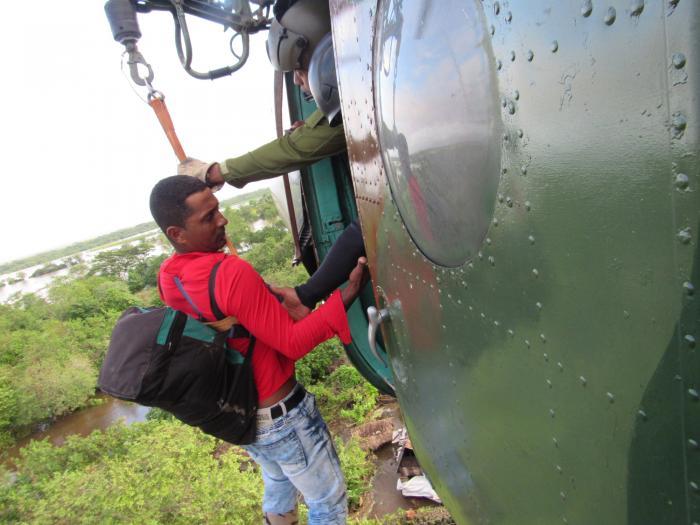
“A huge hurricane Cof work and cooperation”
Over the weekend, relentless efforts were made to address the aftermath of Hurricane Melissa in eastern Cuba, focusing on rescue operations, sanitation, and recovery. President Miguel Díaz-Canel Bermúdez, head of the National Defense Council, praised the combatants of the Revolutionary Armed Forces (FAR) and the Ministry of the Interior (MININT) for their heroic and skillful rescue missions. He emphasized that erasing the extensive damage caused by Melissa would require a monumental effort and widespread cooperation. The hurricane’s torrential rains triggered unprecedented flooding, necessitating the evacuation of thousands of people via air, boat, and train. In the Granma municipality of Río Cauto, hundreds of residents were relocated to Las Tunas, where evacuation centers have been established to shelter approximately 2,400 people. Health responses have been intensified, with a focus on vulnerable communities. Measures include enhanced epidemiological surveillance, deployment of medical brigades, distribution of essential supplies, and activation of prevention protocols to mitigate potential disease outbreaks. Transportation Minister Eduardo Rodríguez Dávila reported severe damage to the railway line to Santiago de Cuba, particularly the Central Line between kilometers 833 and 834.5. Meanwhile, brigades from the electricity and telecommunications sectors are working tirelessly to restore services in affected areas.
-

News : Zapping…
In a week marked by both conflict and cultural celebration, Haiti witnessed significant events across various sectors. On November 2nd, 2025, a major police operation targeted a gang led by ‘Jouma’ in the Simon Pelé and Village Solidarité neighborhoods. Elite units, including SWAT, UTAG, and UDMO, employed kamikaze drones to dismantle fortified gang positions, clearing strategic routes between Cité Militaire and Simon Pelé. While official casualty figures remain undisclosed, preliminary reports indicate numerous gang members were killed, alongside civilian casualties. Simultaneously, Voodoo practitioners celebrated ‘Gede,’ a ritual festival honoring the bond between the living and the dead through songs, offerings, and invocations. In Petit-Goâve, the discovery of five more bodies near the Ladique River raised the death toll from Tropical Storm Melissa to 36. On the diplomatic front, the Ministry of Foreign Affairs announced a photo exhibition at the Jean Price Mars Diplomatic Academy, showcasing Haiti’s diplomatic history from the League of Nations to the United Nations. In the arts, Prime Minister Alix Didier Gils-Aimé congratulated Yanick Lahens for winning the 2025 French Academy Novel Prize for her work ‘Passagères de nuit.’ Sports enthusiasts celebrated Fantastik’s double victory at the Super 8 basketball tournament in Cap-Haïtien, with standout performances from Marcelus Jimmy and Démis Devens.
-
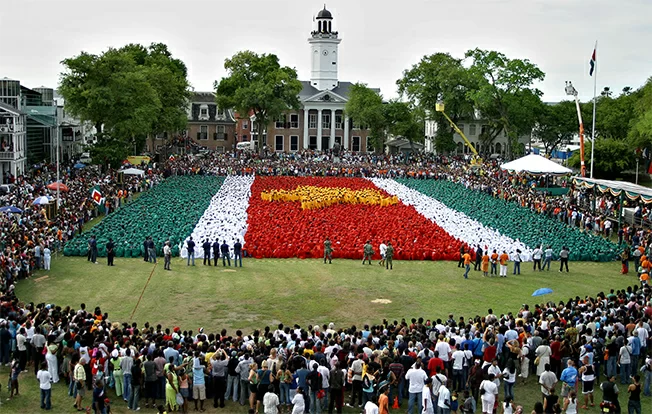
Column: De stilte van Surinaamse vrede
The world is engulfed in chaos, with conflicts and disasters striking multiple regions simultaneously. In Darfur, hundreds of Syrian civilians lost their lives, while border clashes between Afghanistan and Pakistan claimed dozens more. A tragic fire in a Mexican store resulted in numerous casualties, and Sudan is reeling from horrific murders. Floods in Vietnam and Hurricane Melissa in Jamaica have caused widespread devastation. Tanzania witnessed hundreds of deaths due to excessive violence, and protests erupted in Serbia. Closer to home, police raids in Rio de Janeiro led to dozens of fatalities, and in neighboring Guyana, the elected opposition leader was arrested. The world seems upside down, with political, humanitarian, and natural crises everywhere. In Suriname, such news is often skimmed over, rarely prompting deep reflection on the shared humanity of those affected. In Beijing, participants of the CIPCC Program (China International Press Communication Center 2025 Program) from these conflict zones briefly discuss their homelands before moving on, as deadly conflicts have become a normalized part of their lives. Perhaps the perspective would shift if a loved one were involved. In Suriname, too, there is a growing indifference to murders, robberies, stabbings, and hit-and-run incidents, which have become alarmingly routine. The mentality of ‘every man for himself, as long as it doesn’t affect me’ is on the rise. Surinamers are known for their warmth, peacefulness, and conviviality—intangible values that are priceless. This becomes evident when interacting with people from conflict zones, for whom survival is the primary concern. As Suriname approaches its 50th anniversary of independence, it is time to reflect on the often-overlooked blessing of peace. While much of the world grapples with daily turmoil, Suriname enjoys a quiet yet powerful peace—a peace that fosters safety, harmony, and progress. Too often, we fail to recognize the value of this peace. Amid global crises, we sometimes forget our own blessings. Peace is not a given; it is a fragile asset that must be cherished and protected. This requires not only avoiding conflict but also fostering mutual respect and collaboration for a better future. Over 50 years of independence, Suriname has faced many challenges, but the foundation of its society remains its intangible wealth: peace. It is the invisible glue holding its diverse society together. It is our responsibility to view our blessings with fresh eyes and ensure this peace is passed on to the next generation. Let this milestone inspire gratitude and reflection on how to strengthen peace, for only with peace can we build a sustainable and just Suriname where everyone has the opportunity to thrive.
-

Dominican Republic welcomes cooler temperatures with start of frontal season
The Dominican Republic has officially transitioned into the 2025–2026 frontal season, a five-month period characterized by cooler temperatures and more temperate weather across the nation. Meteorologist Jean Suriel highlighted that this season, spanning from November to mid-April, will witness between 20 and 30 cold fronts approaching the northern Caribbean, with 8 to 15 directly impacting the country. The coldest phase is expected from January 15 to March 15, particularly in high-altitude regions such as Valle Nuevo, Pico Duarte, Valle de Bao, and the Sierra de Bahoruco, where temperatures may plummet below zero. These areas could also experience frost, hoarfrost, and even ice floes—rare yet typical occurrences during the Dominican tropical winter. Already, two cold fronts have passed near the northern Caribbean, with another anticipated this week. Additionally, a polar air mass is forecast to reach the island around November 16, further intensifying the chill. Popular destinations to embrace the mountain cold include Constanza, Jarabacoa, Ocoa, San José de las Matas, Polo in Barahona, and Loma de Cabrera. Suriel emphasized that the cooling effect will be most pronounced in the Cibao and mountain regions, though daytime warmth will persist until late November. “Nighttime and early morning hours, particularly between 6:00 p.m. and 9:00 a.m., will feel significantly cooler,” he noted, adding that this shift offers a refreshing respite after months of relentless heat.
-
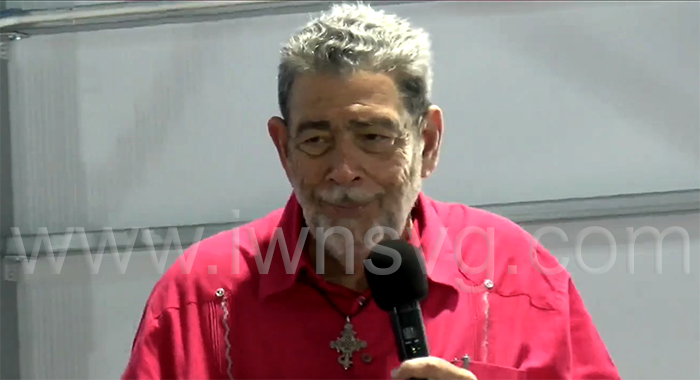
God will not allow NDP to win this election’ – Gonsalves
In a stirring address to his Unity Labour Party’s (ULP) youth convention in Diamond, Prime Minister Ralph Gonsalves of St. Vincent and the Grenadines invoked biblical imagery, likening himself to the prophet Jeremiah and asserting a divine mandate for his leadership. The 79-year-old leader, who has held office since March 2001, confidently declared that the opposition New Democratic Party (NDP) would not prevail in the upcoming November 27 general election, attributing this outcome to divine intervention. ‘NDP can’t win this election,’ Gonsalves proclaimed, emphasizing that God acts through human agency and that his administration represents ‘goodness, nobility, and righteousness.’ Pundits suggest that the NDP poses the most significant challenge to the ULP’s dominance since its ousting in 2001, with the election’s outcome potentially reshaping the nation’s political landscape. Gonsalves urged young supporters to reflect on his 36-minute speech, reminding them of their blessings and the ULP’s commitment to securing their future. He outlined his vision of transforming St. Vincent and the Grenadines into a ‘first world nation’ within 15 years, drawing parallels with global cities like London, Paris, New York, and Toronto. Highlighting his humble beginnings, Gonsalves shared personal anecdotes of his childhood struggles, underscoring the transformative opportunities his government has provided, including universal secondary education and the goal of one university graduate per household by 2030. ‘It’s not where you’re born, but where you’re going,’ he told the youth, reinforcing his message of progress and empowerment.
-
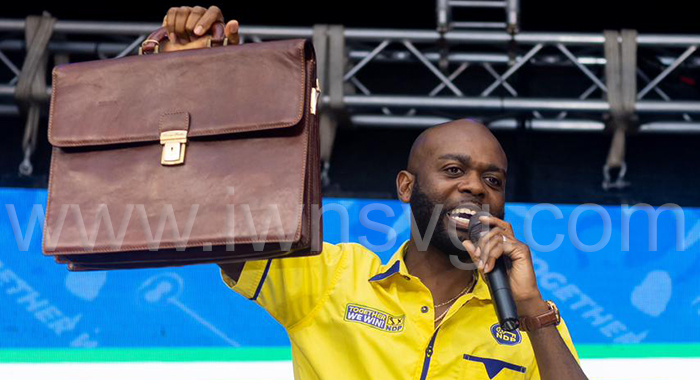
Shallow wants Friday’s permission to release ‘files’ on ULP members
Kishore Shallow, the New Democratic Party (NDP) candidate for North Leeward, has announced his intention to release potentially damaging information about members of the ruling Unity Labour Party (ULP) during the ongoing election campaign. Speaking at an NDP rally in Biabou on Saturday night, Shallow claimed to possess detailed “files” on ULP members, which he plans to disclose after seeking approval from NDP leader Godwin Friday.
-
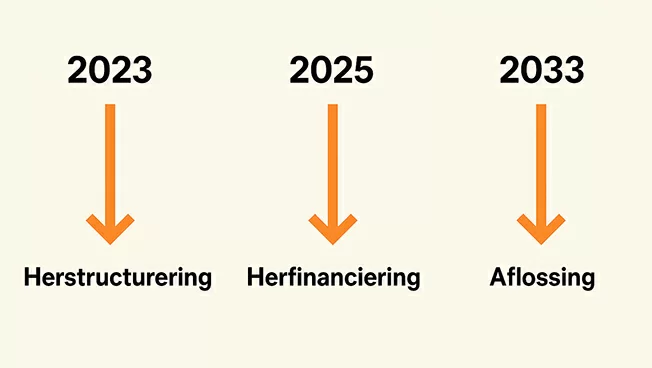
Regering herfinanciert buitenlandse schuld: geen nieuwe lening, wel ademruimte
Suriname has successfully raised approximately $1.6 billion through an international capital market operation, marking a significant milestone in its financial recovery journey. Facilitated by BofA Securities (Bank of America), this refinancing initiative aims to restructure existing state bonds and signifies Suriname’s return to the global capital market. While the final settlement is expected on November 6, the transaction is already being hailed as a pivotal step in restoring financial confidence in the country.
This operation is not a new loan but a refinancing of the 7.95% Cash/PIK Notes due 2033, issued following the 2023 debt restructuring. Investors were invited to tender their existing bonds at a fixed price of $1,002.50 per $1,000 nominal value. The proceeds from the new bond issuance will be used to repay older, more expensive debts, thereby shifting payment obligations to a later period when Suriname anticipates increased revenue from its oil sector. The primary goal is to alleviate budgetary pressure in the coming years without adding to the nation’s total debt burden.
A senior government official emphasized that the operation is designed to ‘create breathing space for the state’s finances,’ allowing Suriname time to grow rather than merely delay borrowing. The transaction was meticulously planned, with the invitation to tender issued on October 23 and results finalized on October 30. The operation was executed through the Automated Tender Offer Program of the U.S. DTC, ensuring transparency and compliance with market regulations.
The refinancing offers immediate liquidity benefits by replacing high-interest bonds with lower-rate, longer-term debt, reducing annual interest expenses. This creates fiscal flexibility for government spending in the coming years. However, experts caution that the strategy’s sustainability hinges on the timely realization of oil revenues and the government’s ability to channel freed-up resources into productive investments.
The successful $1.6 billion raise underscores restored investor confidence, bolstered by Suriname’s improved credit rating. While the exact interest rate remains undisclosed, it is reportedly favorable compared to previous issuances. Notably, the refinancing was conducted independently of an IMF program, though the country continues to receive technical assistance from the fund.
While the operation is a technical and diplomatic triumph, analysts warn that refinancing is not a structural solution but a temporary relief. Its success depends on budgetary discipline, political stability, and the timely inflow of oil and tax revenues. The government has pledged to release further details on the bond’s terms and repayment structure this week, providing clarity on the next steps in Suriname’s financial policy.
Symbolically, this operation represents Suriname’s first independent access to the international capital market since the 2023 restructuring, signaling regained credibility in financial management. It aligns with broader efforts to drive structural economic reforms and strengthen ties with international financial institutions and investors.
The challenge now lies in leveraging this financial breathing space to foster sustainable growth, ensuring future governments are not compelled to refinance old debts. This operation underscores that financial recovery begins not with loans but with trust—a trust that, once regained, must be carefully nurtured.
-

Can NDP actually win?
The political landscape of St. Vincent and the Grenadines has been dominated by the Unity Labour Party (ULP) for over two decades, but recent electoral data suggests a significant shift in voter support towards the New Democratic Party (NDP). A detailed analysis of election results from 2001 to 2020 reveals a compelling narrative of the NDP’s gradual rise in popularity, challenging the long-standing dominance of the ULP.
-
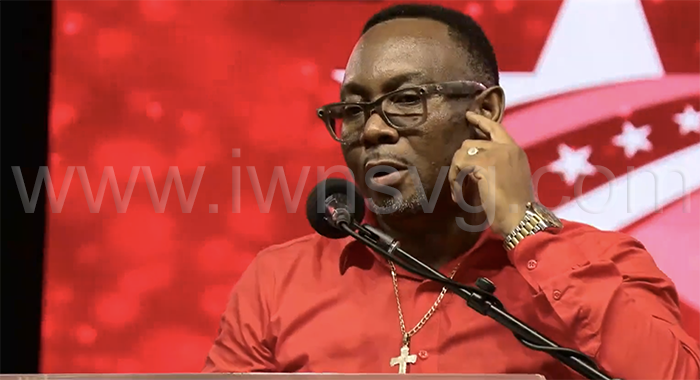
Central Kingstown already feeling the ‘Mega effect’ — Fraser
Marvin ‘Mega’ Fraser, the Unity Labour Party’s (ULP) candidate for Central Kingstown, is making waves in the constituency with what he calls the ‘Mega effect.’ A first-time political contender, Fraser is challenging St. Clair Leacock of the New Democratic Party (NDP), who has held the seat since 2010. Fraser, a former president of the St. Vincent and the Grenadines Football Federation (SVGFF), is leveraging his community ties and leadership experience to rally support. At a recent ULP Strong Rally in Richmond Hill, Fraser emphasized his commitment to Central Kingstown’s development, promising practical training, improved infrastructure, and enhanced social services. He highlighted his initiatives, such as organizing a local football competition that drew significant community engagement, including the attendance of his political opponent. Fraser’s campaign focuses on progress, unity, and addressing the needs of constituents, particularly in areas like education, healthcare, and housing. He criticized the NDP’s proposed citizenship by investment (CBI) programme, which the ULP has long opposed. With the general election set for November 27, Fraser is confident that the ULP’s vision for Central Kingstown will resonate with voters, marking a new chapter of growth and opportunity.
